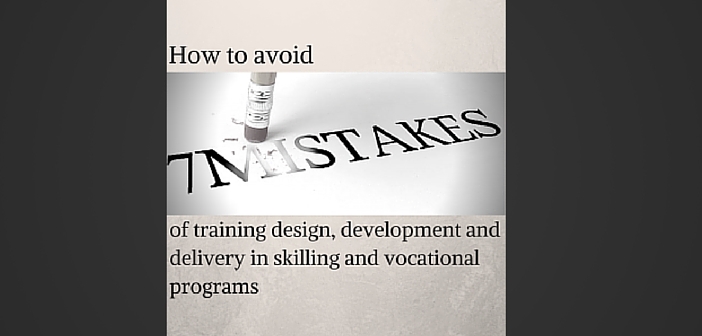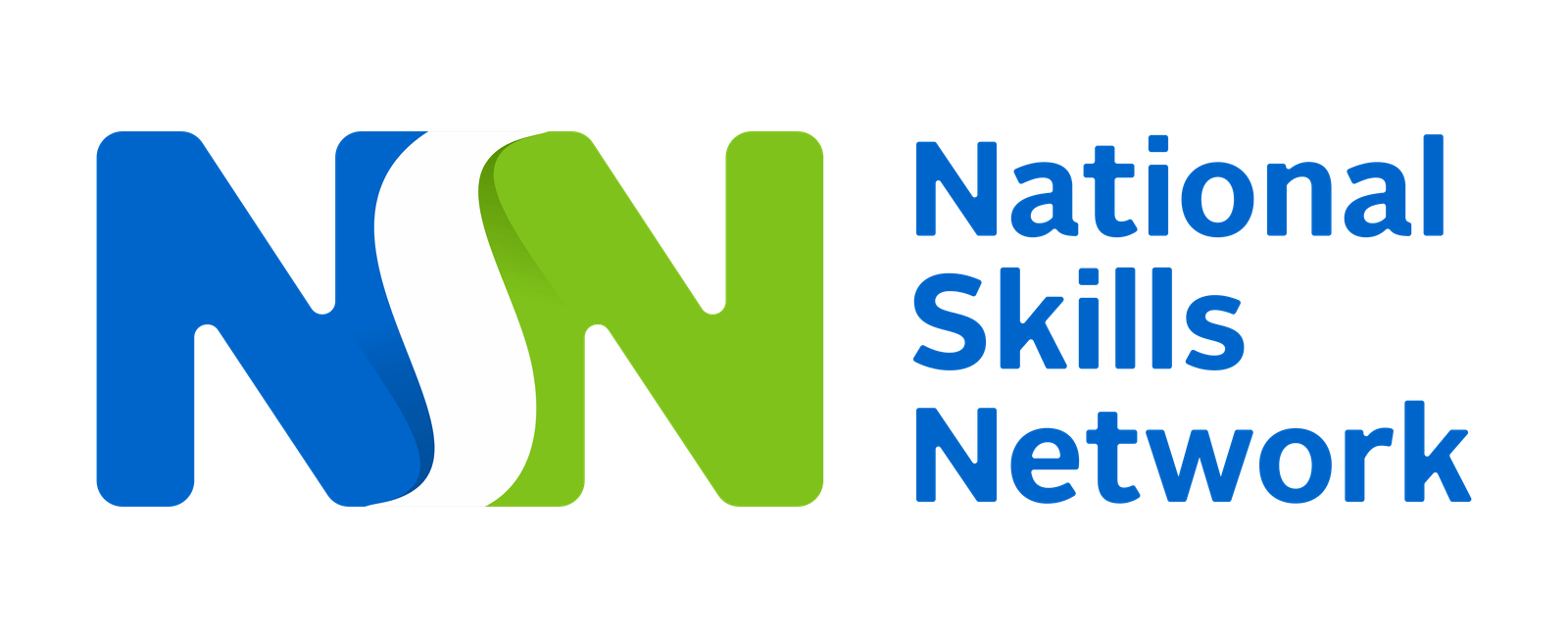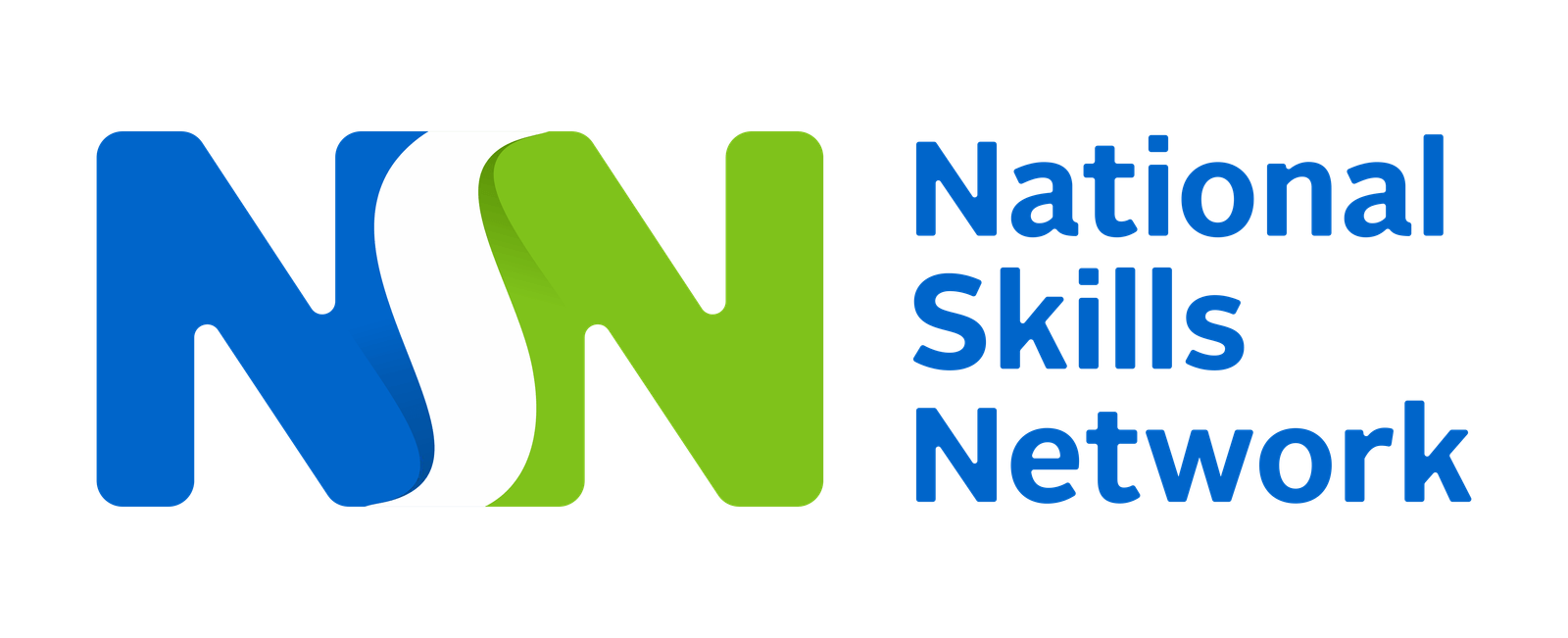Skill development is largely implemented through focused training. It could be vocational training (TVET) or on-the-job training. For training to be successful and result in better performance we need to ensure that all the stakeholders are aware of the factors that play a critical role in designing, developing, delivering and evaluating training. Here are seven critical mistakes that must be avoided at any cost to enhance the impact of training and make it effective, performance-based and result-oriented.

7 Critical mistakes in skill development programs
Failing to see the big picture: Everyone involved in training should make an effort to convey the long term value of skill development, especially, in India, where vocational education and training is still looked down upon. Trainers, curriculum designers and students should be made aware of the benefits of voluntary skilling and its role in sustained employability and economic development. In the long run, we should align skilling with formal academic curriculum and synergize it with vocational stream. It is also crucial to follow the guidelines specified in NSQF while developing the training.
Lack of trained trainers: In the absence of adequate training for trainers, it is difficult to expect quality of outcome from the training interventions. Since trainers form the core of the skills ecosystem, we need several training of trainer (TOT) programs that are specifically aimed at outcome based training. Professional trainers needed not limit their job to delivering training; they can also look into the design and development aspects of the curriculum in consultation with industry experts. Fast track TOT can empower passionate teachers, technical instructors, subject and industry experts to meet the challenges and targets of providing skilled workforce.
Over emphasis on practical, hands-on training: Skill development should not be relegated to learning manual and practical skills. This may help at basic levels but, for any skilling program to be useful and aspirational, it needs to include theoretical knowledge. Basic skills are necessary to perform a task and it can add value to formal academic learning in graduate programs. It can prepare school dropouts and those not inclined towards higher education through apprenticeship opportunties. However, for long term employability and improvement in job role and income, it is essential to include knowledge components and balance the vocational with the academic.
Poor alignment with industry needs: Even while implementing the curriculum prescribed in the NSQF it is important to consult industry experts while developing and delivering technical training. It is absolutely necessary to follow the levels mentioned in NSQF to make training relevant and responsive to industry needs. However, one should not miss the fact that the industry also needs their workforce to be in generic and transferable skills. The scope of these skills typically includes communication (verbal and written), numeracy, IT, team work, problem solving and learning to learn. Hence, it is pertinent that generic skills should also find a place in training.
Not including Instructional Design: Technical and hard skills training requires careful application of Instructional Design principles and practices. It calls for developing training on the lines of concepts, procedures and processes for closing the skill gaps. Systematic design of training takes into account how we identify the competencies, skills and knowledge gaps, how we prioritize the training needs and map the content with the needs of the industry. Other factors like the training environment, learner readiness, infrastructural support, evaluation, ROI,and so on. Instructional Design inputs and insights are extremely relevant at various stages of training: Pre-Design, Design, Development, Review, Delivery and Evaluation.
Ignoring prior learning and experience: The audience for skill development programs are mostly adults. Teaching and training adults is not the same as teaching children. A quick reference to Adult Learning Principles is a must. Adults come with real world experience and informal learning that needs to be valued and considered while developing and delivering training. In fact, this boosts their motivation and keeps them engaged and helps in acquiring new knowledge and skills.
Underestimating the power of digital technology: For rapid and outcome based skill development, digital technology integration is most critical. The availability of good Internet bandwidth, Wi-Fi networks, handheld devices, mobile phones, web conferencing have made e-elearning and mobile learning the right blend with traditional class room learning. Failure to invest in technology enabled training will have serious impact on skills training, making it slow, inconsistent and limited in reach. For massive skilling initiatives technology can be the most cost effective medium to complement classroom training with quality content and easy accessibility.
The seven mistakes discussed so far are indeed critical to avoid. Let’s remember, when skill development becomes a national agenda and priority, awareness and promotion needs to translate into tangible and replicable results that can benefit the industry and society at large.
Picture credit: http://affordable-seo.in; picture is modified for the blog.
Subscribe to our YouTube channel for more updates:
Subscribe on YouTube














A skilled trainer must have qualified with proper practicing and it should align skill with formal and informal strategies. To guide all type of students. Lack of adequate training for trainers can’t move forward and the outcome become less. We need a professional trainer, so to gain best trainers. it may help at basic to top level training and we balance every situation. To accept the audience skills and development. And used to understand digital technology for fast outcome. I just conclude a professional trainer must have all the qualities are qualified with a good trainer.
very helpful and relevant. indeed the above mentioned 7mistakes are the most common one which is done during the skill development program thus making it less productive.
Yes Indeed these mistakes are done by all the trainers but it can be avoided by anticipating the needs of the trainees and structuring the training program accordingly. While making training programs we should not forget to discuss with the industry heads because they can tell us exactly how they want their employees to be trained and we can jot down the program as per their need. Also the prior experience of the employees should be considered .That way the trainees will feel connected and important .Hands-on experience is good but practical can be done properly only when a person knows theory behind it. Therefore there should be a balance between theory and practical. At the end as a trainer we should make use of the greatest power available at our disposal which is TECHNOLOGY. It can do wonders in taking training sessions to a whole new level.
Agreed with article things, that normally we do this mistakes while doing Skill Training